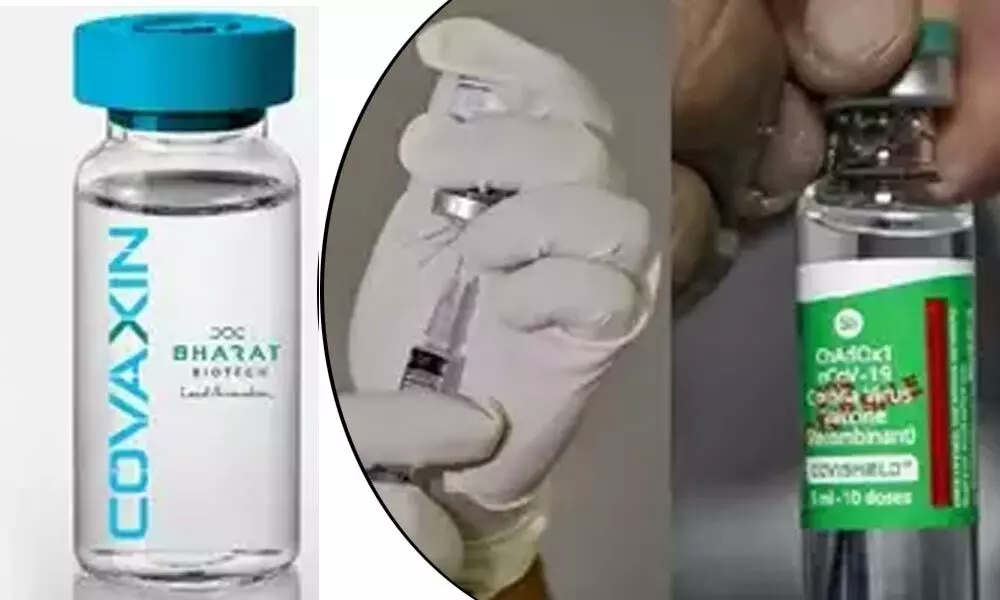Live
- Police appeals to public to stay alert against ‘digital arrest’ scam
- Coastal enthusiasts rejoice as govt announces funding for Kambala
- A Year of Olympic heartbreak for badminton
- KSRTC rolls out 20 ‘Ambaari Utsav’ sleeper buses
- Consecutive Olympic medals, Sreejesh, HIL make headlines
- Indian athletics: Neeraj stands tall
- YSRCP blamed for delay in bypass road completion
- Minister discusses ‘loan for capital’ with Hudco CMD
- BJP highly respects Ambedkar: Purandeswari
- Sensex, Nifty edge down in sluggish trading
Just In
In A Preliminary Study, Covishield Produced More Antibodies Than Covaxin


In A Preliminary Study, Covishield Produced More Antibodies Than Covaxin
According to a preliminary study by Coronavirus Vaccine-induced Antibody Titre (COVAT) involving healthcare workers (HCW), it is found that the Covishield vaccine produced more antibodies than the Covaxin vaccine.
According to a preliminary study by Coronavirus Vaccine-induced Antibody Titre (COVAT) involving healthcare workers (HCW), it is found that the Covishield vaccine produced more antibodies than the Covaxin vaccine.
According to the study, after the first dosage, Covishield recipients had considerably greater anti-spike antibody seropositivity rates than Covaxin recipients. Anti-spike antibody titres were observed to be considerably greater in covishield recipients as well. Covishield and Covaxin, generated a decent response after two doses, although Covishield had a much higher seropositivity rate and median anti-spike antibody. Even though this is a preprint that hasn't been peer-reviewed, it shouldn't be used to guide clinical practise, a report published by NDTV.
The researchers examined healthcare workers who had received one of the two vaccinations, Covishield or Covaxin, and had a history of SARS-CoV-2 infection or not.
The vaccinations could induce an immune response in 95 percent of recipients 21-36 days after the second dose, according to pan-India research involving 515 vaccinated healthcare workers (425 with Covishield and 90 with Covaxin) from 13 states and 22 cities. The seropositivity found in the people vaccinated with Covishield is 98 percent whereas the recipients of covaxin is around 80 percent. Attendees under the age of 60 years had a considerably higher proportion of seropositivity (96.3 per cent) than those aged 60 and more (87.2 percent).
The goal of the study, according to lead author and endocrinologist Dr Awadhesh Kumar Singh of G D Hospital & Diabetes Institute in Kolkata, was to look at the real-world effectiveness of immunisation rather than to remark on whether the vaccine is superior. He further added that both vaccines are equally effective in people who have had Covid infection and can produce significant antibody levels after just one dose. Covishield, on the other hand, could give individuals who don't have Covid an advantage.

© 2024 Hyderabad Media House Limited/The Hans India. All rights reserved. Powered by hocalwire.com






